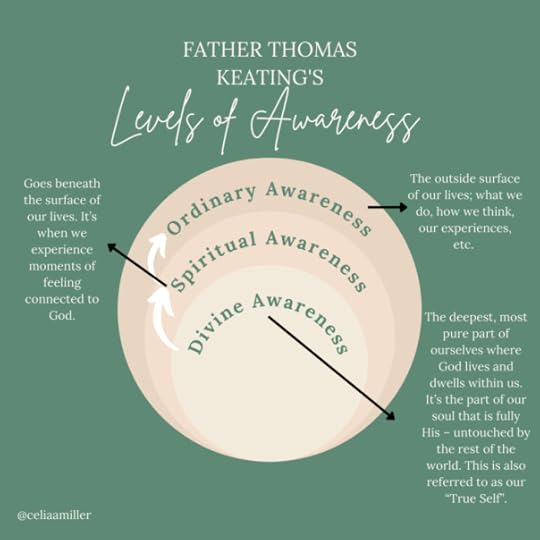Rod White's Blog
November 17, 2025
Nuremburg: The first casualty of war is psychiatry?
 Russell Crowe, Leo Woodall, Rami MalekNuremburg, the repeatable morality play
Russell Crowe, Leo Woodall, Rami MalekNuremburg, the repeatable morality playBetween 1939 and 1945, Nazi Germany invaded many countries across Europe and occupied them with systematic brutality. They inflicted 27 million deaths in the Soviet Union alone and exterminated two-thirds of the continent’s Jewish population. Proposals for how to punish the defeated Nazi leaders ranged from a show trial (the Soviet Union) to summary executions (the United Kingdom). In mid-1945, France, the Soviet Union, the United Kingdom, and the United States agreed to convene a joint tribunal in Nuremberg, occupied Germany, with the Nuremberg Charter as its legal instrument. For nearly a year, beginning in November of 1945, the International Military Tribunal (IMT) tried 22 of the most important surviving leaders of Nazi Germany in the political, military, and economic spheres, as well as six German organizations. The purpose of the trial was not just to convict the defendants but also to collect irrefutable evidence of Nazi crimes, offer a history lesson to the defeated Germans, and delegitimize the traditional German elite.
Since the year of the tribunal, every generation has created a cinematic history lesson about the Nuremburg Trials. There is so much to learn and feel about the drama of seeing the captured Nazis being tried according to a new idea for international law. As the films try to make sense of what happened and preserve the memory, they also offer a look at the generation who made them.
Judgement at Nuremburg in 1961 had an all-star cast. It was based on a Teleplay by Abby Mann.
Nuremburg, a TV mini series in 2000, starring Alec Baldwin, was based on Nuremberg: Infamy on Trial by Joseph E. Persico.
Now Nuremberg in 2025 has another all-star cast. This time, the film focuses on a psychiatrist, Douglas Kelley, played by Rami Malek. It is based on The Nazi and the Psychiatrist by Jack El-Hai.
The most recent re-telling is a very engaging movie for being mostly dialogue and courtroom scenes. The gist is: a WW2 psychiatrist evaluates Nazi leaders before the Nuremberg trials, growing increasingly obsessed with understanding evil as he forms a disturbing bond with Hermann Goering. [See this TIME review for more]
The movie circles around the growing relationship between Douglas Kelley and Goering. Kelley’s open mind is a perfect opportunity for Goering to plot whatever advantage he can achieve. Kelley is plagued by conscience, the Reichmaster is not. Goering plays on the psychiatrist’s sympathies and weaknesses as he positions himself to become a noble victim. His behavior is a textbook case of an anti-social personality disorder strategy many now call DARVO (Deny, Attack, Reverse Victim and Offender) painted on a large, disturbing canvas.
Some have said the other psychiatrist who was brought in to join Douglas Kelley, Gustave Gilbert (played in the film by Colin Hanks), might have been the better psychiatrist on which to base the movie. The book he wrote, unlike Kelley’s, was quite well-received, mainly because Gilbert made a diagnosis and then proved it. But I think the filmmakers made the right decision to focus on Kelley. His empathy and his own troubled soul, which finally led him to suicide many years later, seems much more appropriate in our very unsure age, which is once again being seduced into subjugation by tyrants.
[Philosopher and filmmaker, Matthew Cooke, is dead set against these tyrants who are subject to their “dark triad” and so subjecting us all to their will.]
The amiable psychopathGilbert’s book is far from useless, however. In it he labeled Goering an “amiable psychopath” in an era in which the term “psychopath” was just coming into focus with some definition. You can read about it in his collected notes: Nuremburg Diary.
There Gilbert recounts the life history of the number two Nazi. He says Goering’s physical and intellectual “constitution” played its part in his rise to the top and aided his sadistic, aggressive leadership. But it was the cold Prussian home he experienced as a child that nurtured his lack of authentic feeling for others and led to his brutality. He was fed on Teutonic legends and Junker militarism. As a result, Goering believed deeply in loyalty to the Kaiser, military chivalry, military aristocracy, and German superiority. Peaceful or democratic people were repulsive to him. He was never able to take punishment or to benefit from disapproval, so he became completely self-centered. The Nazi party provided the perfect opportunity for gaining power, for loyalty to an absolute Führer, for sadistic excitement, for revenge against enemies, and for unlimited financial gain. Play acting as an amiable nobleman served the needs of his fantasy image. At Nuremberg he gave a fine performance, but the final evidence of all the atrocities spoiled his heroic pose.
In the movie, Goering seems like a devoted husband and father. Kelley is portrayed as a delivery man keeping the family ties alive while Goering is in prison and his wife and daughter are in hiding. It is as hard to tell what he actually is in the movie as it is hard to unmask a sociopath in real life. One of the key strategies of psychopaths is to skillfully appear normal, even noble. So it is useful to list how these people work. It is typical to see these traits that make them “amiable.”
Superficial Charm and Narcissism: Goering was noted for his outgoing, flamboyant personality and a powerful charisma that could charm people, including his prison psychiatrist and other captors. His ability to form appealing, though superficial, connections probably extended to his personal and family life, where he could maintain the appearance of a normal, loving relationship.Lack of Empathy, Not Lack of All Emotion: Psychopathy is primarily characterized by a lack of empathy and shame, and a disregard for the rights and feelings of others, particularly those outside one’s immediate “circle.” It does not mean a complete absence of all emotion. Psychopaths can experience anger, excitement, and even a form of possessive “affection” for people they view as an extension of themselves or their property.Family as an Extension of Self/Status: For a narcissist and psychopath like Goering, his wife and daughter were part of his curated life and status. He displayed meticulous attention to his body and image, and his family and servants were also well attended-to as extensions of himself. Their well-being and loyalty reflected positively on him and his image of being a powerful, successful man. His primary concern at Nuremberg was that his family was all right, which aligns with protecting his “possessions” or legacy.Compartmentalization: Psychopaths are adept at compartmentalizing their lives. Goering was able be intricately involved in the horrors of the Nazi regime — including planning the “final solution,” which he claimed was not his department, and at the same time was able to maintain a functional home life that appeared charmed. It is fascinating how he can demonstrate an extreme level of moral detachment and separate his public atrocities from his private self-image.In essence, Goering’s “warm” relationships were likely a form of selective attachment to people who served his self-image, status, and personal fantasies, rather than true, empathetic love that could extend to humanity in general. His actions demonstrated a profound lack of empathy and conscience, which are core features of psychopathy, despite his ability to maintain seemingly normal, even charming, interpersonal relationships.
 Kelley facing the true GoeringPsychiatry becomes a casualty
Kelley facing the true GoeringPsychiatry becomes a casualtyDo you think it is indicative of our era that we would recast the Nuremburg trials by having a psychiatrist be the main protagonist? In 1961 the star was a judge (Spencer Tracey was a respectable 61 years old). In 2000 the star was a sexually-challenged prosecutor (Alec Baldwin was a 42-year old playing Justice Jackson at 53). In 2025 the star is a faulty psychiatrist (Egyptian, Rami Malek, 44, playing 33-year-old Kelley — beautifully, I might add, with a bit of Mr. Robot thrown in).
We see Douglas Kelley as flawed but also caring, daring and quick to learn. His experiences highlight the weaknesses of psychotherapy when it is subject to the culture and the state. And they highlight the inevitable weaknesses of psychotherapists when they try to navigate the mysteries of unique beings in flawed systems.
Here are his main failures that open his psychiatry to death blows:
He is seduced by a powerful narcissist, who is probably on the malignant narcissist to psychopath spectrum (my research). If a therapist loves his client (as I always do), it is a short walk to erasing the therapist-patient boundary that keeps a clinician within ethical guidelines and delivers the best care to the client. Kelley is gradually lured into the spider web where the lie can eat him.When asked to break confidentiality, he does. Confidentiality is the bedrock of client-therapist trust. Kelley wants to maintain it, at first, and keeps many secrets from his superiors (like knowing the whereabouts of Goering’s family). But in the end he provides all his material and insight to the prosecutors.Some would say maintaining the privacy of a psychopath violates a psychotherapist’s “duty to inform.” That duty is a legal and ethical obligation for therapists to break patient confidentiality in specific circumstances, most notably when a client poses a serious and imminent threat to themselves or others. Often it is called the “duty to warn” or “duty to protect,” that requires therapists to take reasonable steps to prevent harm, which may include warning the potential victim, notifying law enforcement, or seeking higher levels of care for the client. It is a critical exception to the rule of confidentiality, designed to balance the need for a safe therapeutic relationship with the responsibility to protect public safety.
He connects secretly with Goering’s family in the name of fact-finding (today we might call it “systems work”). This is another aspect of Kelley’s deceptive behavior. He isn’t merely collecting facts, he is delighting in the affection of Goering’s daughter. He could have had a dialog with his superior, but in the hysteria of war and the lack of trust in his commander, there s a lot of room for his defense. While watching the movie, I often wondered out loud, “Who is the Nazi here?” In several places the prosecutor also has doubts about how to apply laws that the countries sitting in judgment have also blatantly violated. How is Kelley supposed to follow his rules?He makes friends with his client. I wrote my dissertation on multiple relationships so I was especially interested in his dilemma. Boundaries were almost impossible to keep within the several small communities in which he was operating: 1) the military with its prohibitive regulations and demands for obedience to a commanding officer, 2) the German prisoners, who all had psychological needs and who were part of a tight-knit group with their own prohibitions and assumptions, 3) the Goering family system, in which he acted as a text book example of operating outside prescribed boundaries, not having informed consent in any number of ways. Many critics point out the present ethics codes still assume a Eurocentric cityscape where individuals can decide their own fate and act autonomously, which no one in Kelley’s circumstances could, including him.From the outset, he Intends to capitalize on his experience by writing a book. After all, he has an eyewitness intimacy with the authors of evil we need to understand. That’s not bad logic. His colleague, Gustav Gilbert, as I said, also wrote a book in which he delivered the verdict that all these people were disordered. Kelley’s book, 22 Cells in Nuremberg: A Psychiatrist Examines the Nazi Criminal, has more sympathy, pathos and uncertainty. When it comes to any therapist writing a book about their clients, I asked a colleague if confidentiality were required after a client was dead — after all, one cannot get permission to tell their story, since they have died. They said. “That’s right, you can’t.”He would not consult and was probably too young and inexperienced for the job. Therapists are bound to refer clients to other, more competent, helpers when they do not have the expertise to treat them. Kelley needed a lot of help and should have found it. But it is hard to imagine the clinician who had the credentials to be thrown into the cells of the unique and deranged people Kelley encountered, right? His assignment was to “keep them alive” and he failed in the eyes of his commander because Goering had a cyanide pill stashed in the uniform the higher-ups allowed him to retain. As with the rest of Kelley’s ethical missteps, there is a lot of room for forgiveness if not absolution. It would seem that the first casualty of war is not only the public truth, but the private, as well.I imagined myself parachuted into Nuremburg after enjoying the fruitful work of helping men with PTSD, as Kelley had been doing. It seemed like a nightmare. I could relate to Kelley’s fascination and eagerness to meet these once-in-a-lifetime clients, to learn, and to be special. But he obviously did not know a great deal about sociopathy and its sister maladies or he definitely would have taken a different tack with Goering. And he probably would have taken another course with all the prisoners as a group, since they all had engaged in creating or or had been drawn into the sociopathic society of the Third Reich, a pathocracy.
As a Christian looking in from the outside, socially, and looking out from the inside, beyond ordinary awareness, I was not too surprised, just consistently sad as I watched the Nuremburg morality play rerun for our generation. The movie was so realistic, some people might call in cynical. But I think it was just being as clear as it could be: everyone has a unique story and many of us are not only fighting the traumas of normal life, we are beset by the disruption we face in our very genes.
The road to life is narrow for many reasons. I have to admit that my clients often end up on a spiritual journey, even when I am not overtly Christian with them. They need a deeper route to take, because the usual resources of society and the law are simply not enough to help them heal and grow, inside or out. Nuremburg pointed this out this lack in every character. Some may call it cynical for that reason, but I call it realistic. The Savior was not welcomed. There was very little of God in movie, but who but Jesus had any hope of making goodness out of hanging 22 devils? Wonderful things followed the horrors of the two great wars of the 20th century. But here we are again only 80 years later, facing the same sociopaths, only now there is not enough faith or even enough trust in the law to face them down. Or so it only appears, I hope.
*****
Today is Hild Day! Meet this great leader from the 7th century church in Northumbria at the Transhistorical Body.
The post Nuremburg: The first casualty of war is psychiatry? appeared first on Development.November 9, 2025
Moving into the third level of awareness in everyday life
I went to a large memorial service recently. It was full of stories and very moving because the woman being remembered was influential and beloved. I went because she prayed for me.
 When we first landed in Philadelphia to plant a church, I knew we were likely to fail if we did not call on gifted people to pray for us. I collected scores of people to intercede who got a regular letter listing our triumphs and trials. Grace Holland was among the first to join in. Whenever I saw her she told me how she was praying and often had a question about something in our letter that intrigued her. She might not have known how much that meant to me; and she might not have really cared, since praying was a reward in itself for her.
When we first landed in Philadelphia to plant a church, I knew we were likely to fail if we did not call on gifted people to pray for us. I collected scores of people to intercede who got a regular letter listing our triumphs and trials. Grace Holland was among the first to join in. Whenever I saw her she told me how she was praying and often had a question about something in our letter that intrigued her. She might not have known how much that meant to me; and she might not have really cared, since praying was a reward in itself for her.
Grace’s family is so full of faith and the wildness missionary kids often carry it would have been hard not to have an interesting and spiritually-stimulating morning at the memorial they held. I had a wonderful time. In fact, I have kept mentalizing about it, which led me to write this post.
As a person who has led many meetings for stories, teaching, ceremony and worship, I know members of an audience are not having a singular experience. At any given moment, someone is receiving what is offered with their ordinary awareness, perhaps exclusively. Others will be experiencing it with their spiritual awareness. Still others are blessed in their deepest hearts with an awareness of the presence of God.

Thomas Keating, the main instigator in the Centering Prayer movement which got rolling in the 1970s, drew a simple target graphic to explain his common-sense description of what is happening when we turn toward God. I have been re-reading Cynthia Bourgeault’s classic expansion on his chart in Centering Prayer and Inner Awakening.
Ordinary awarenessSome people who attended the funeral probably experienced it entirely with their ordinary awareness. They might have been children. They could have been a distant relation or acquaintance unfamiliar with the family or their brand of Christianity and were caught up with the curiosity of it all. Or they may have been spiritually undeveloped due to lack of opportunity or resistance. People with childhood trauma or children of parents who did not nurture a secure attachment often find it difficult to connect with other people or God and spend much of their time feeling so responsible for their well-being they can’t do anything else.
Ordinary awareness is the reflexive consciousness that only humans have, as far as we know. I have several pictures of a son staring at his fist as a baby coming to the realization he is a separate being from his mother. We all have the capacity to stand outside ourselves and look upon ourselves in the third person. We come to know ourselves as distinct from others with attributes and gifts that need to be expressed to “be ourselves.”
So I experienced the funeral with my ordinary awareness. For instance, I thought I had left with plenty of time to spare after the long drive from Philly to Harrisburg. But I actually just made it to the memorial in time, since the turnpike was jammed due to a car having caught fire. We saw it melted on the shoulder with its poor owners watching the firemen mop up. The feelings stuck with me. Then I entered a large meeting room with quite a few people I had not seen for years and a few I did not want to see. My “monkey mind” was hopping.
At any given moment our awareness is full of stimulating things coming at us which often stimulate things we have stored up: random thoughts, memories, associations and sensations. We get “triggered,” we like to say, and habitual reactions may lead to a chain reaction that can set off our anxiety. If we did not have that sense of “self” that can step back and see what is going on, we might not be able to endure the chaos. That self-reflexive “I” is probing and measuring the universe all day, and even when we dream it asks things like, “How am I doing?” “Is it safe here?” “What did she mean by that?” “Am I OK?”
Bourgeault says, “Another name for ‘ordinary awareness’ is ‘egoic thinking.’ It is the normal functioning zone of the human mind. It doesn’t matter whether you’re a Ph.D., a bishop, a nuclear physicist; how brilliantly intellectual or intensely devout you may be. Without spiritual training, your sense of the world and your sense of yourself will be formed at this level of awareness. Even the so-called self-awareness tools of our times, from psychotherapy to Meyers-Briggs personality typing to the enneagram, spend most of their effort merely resorting and clarifying the characteristics: ‘I am an INFP,’ ‘a gut-centered type,’ ‘a five,’ etc. This may add insights into the workings of the personality, but it’s till ordinary awareness.
Spiritual awarenessThe funeral lasted about two hours. So there was a lot of opportunity for ordinary awareness. Plus I had to catch up with some old friends which occupied my mind and heart with pleasantries and tragedies.
Thinking together about our experience afterward, my wife and I realized that shortly after we arrived we had already soaked up the emotion swirling around the room, as a psychologist and psychotherapist might be prone to do. We were primed to be moved beyond our ordinary awareness and into our spiritual awareness. Grace was a well-known worshiper, so a time for that was included. Almost with the first note, both of us began to cry. And we were drawn beyond ourselves.
As the worship continued, it would have been hard to miss the experience of spiritual awareness all humans are equipped to have whether someone was a Jesus follower of not. The meeting was like a first glimpse of Yosemite Valley, which seems to make everyone pause with awe. I first experienced such wonder under the stars in the Anza-Borrego desert. You may have felt it during a beautiful fall sunset last week. At times I have been drawn in when my friends were dancing or we were meeting an emergency together. And, of course, babies have been born.
Bourgeault says “spiritual awareness is actually a way of perceiving, just as ordinary awareness is a way of perceiving. As with ordinary awareness, there is a sense of identity or selfhood generated through this mode of perception. The big difference between them is that whereas ordinary awareness perceives through self-reflective consciousness, which splits the world into subject and object; spiritual awareness perceives through an intuitive grasp of the whole and an innate sense of belonging. It’s something like sounding the note G on the piano and instantly hearing the D and the B that surround it and make it a chord. And since spiritual awareness is perception based on harmony, the sense of selfhood arising out of it is not plagued by that sense of isolation and anxiety that dominates life at the ordinary level of awareness.“
Holy Spirit awareness.I was delighted with the smorgasbord of spiritual food we shared with Grace Holland’s family. I think she would have loved it – even the parts she thought we not fully baked yet. She would have loved how the meeting regularly veered into a thin place where we could reach into the bull’s-eye of the target, the goal Father Keating called our “divine awareness.”
The moment in the meeting I remember most, and these moments are usually relatively fleeting for all of us, was when we sang one of Grace’s favorite songs. Her son, Mike, recounted it was a tune that might pop into her ordinary awareness and lead her beyond it at any moment. I have also been moved by it since Maranatha Music released it on Praise 4 in 1980: “I Love you Lord.”
The song arose in the late 1970’s when it tumbled out during Laurie Klein’s quiet time before her toddler woke up. It found its way to Jack Hayford’s Church on the Way in Van Nuys, California, which I visited. It was recorded by several musicians in the budding Christian music scene, including 2nd Chapter of Acts, who I followed. It gained general recognition when Maranatha! Music published it and now Korean choirs sing it, too.
As we sang it, I felt the presence of God course through my body. I was one with God, with those gathered and with everyone who has sang that song throughout my life and throughout the world. I enjoy remembering that experience.
We all have a place at the center of us where our own being and God’s being are mysteriously interwoven, even if we are not aware of it. Bourgeault says, “The divine indwelling is the cornerstone of contemplative prayer. Thomas Keating refers to it as ‘our personal big bang,’ for it reveals the Source of our own being – the explosion of divine love into form which first gave rise to our personal life. It also reveals the direction our heart must travel for a constantly renewed intimacy with this Source. As we enter contemplative prayer, we draw near the wellspring from which our being flows.“
The whole world is full of gloryThe big, noisy funeral I attended did not have much silence at all. Maybe I will leave that as a request for own funeral. But I carried a silent place with me as I attended which has been formed by years of attention to God-with-us. We meet God deep within us and all around us. It is beautiful when a song flows out of your personal, private quiet time. But the whole earth is full of the glory of God. We meet God-with-us wherever we go. We can’t make an appointment, per se, but we can expect that glory to erupt into our awareness.
Bourgeault points out that ordinary awareness and spiritual awareness are both necessary for functioning in this world. “But the idea in spiritual transformation is to integrate and reprioritize these levels so that our ordinary awareness is in alignment with and in service to our spiritual awareness (which in turn, as we have seen, is in service to the divine awareness). In that alignment our being flows rightly, from innermost out. When something needs to be done in the outer world, we have sufficient ego strength to do it. But unlike ordinary awareness, which is always doing things to assert itself or fulfill itself, action grounded in our spiritual awareness merely flows out of the divine abundance without regard to outcome or any need to draw attention to itself.”
To hear her family and pastors talk about her, the heart of God and Grace’s own heart were in a deep embrace at the center of her and much of her action flowed from that abundant life. I took that away as a lesson. But more so, I experienced its legacy at her funeral and joined with her in the eternal life of it.
The post Moving into the third level of awareness in everyday life appeared first on Development.November 3, 2025
The president who drove Christians back to basic faith
If you are hesitant to have faith in Jesus and express it these days, I am not surprised. I think many of us already feel burned and the unburned have felt the heat. If we say anything in public it might be on camera for Homeland Security to discover, or some social media coup-collaborator might go after you! For instance, I advertised my research presentation on Facebook and about 1000 people took a look at the post. I put my psychology/Christianity integration work out there and people listened. Despite positive impact, there is one comment I keep thinking about: “Amazing the hate in the hearts of people under the guise of research it simply exposes bias and lack of critical objectivity.”
The comment was another example of DARVO by a rather religious person I rather like – in the flesh, at least. He did not deny Trump is a sociopath, directly, he went straight to attacking me, personally, as someone with hate in my heart pumping out research that lacks objectivity. This was all in the cause of defending the victimized president and his followers. Deny, attack, reverse victim and offender — that’s how it works.
 Golden Trump at the merch site at CPAC in 2021 (AP/John Raoux). Click for source
Golden Trump at the merch site at CPAC in 2021 (AP/John Raoux). Click for sourceBut Trump is no victim. He even has worshipers. Millions of Americans have faith in him. The comparison has been made for years between how the children of Israel freely combined their gold to make a calf to worship while Moses was up in on the mountain receiving the law and the shocking number of Americans who worship Trump.
I am amazed they so freely give up their rights as Americans under the law. As poorly as those laws protect many citizens in this historic republic of the rich, they are better than nothing. Nevertheless, people follow Trump, who remodels the White house with gold while denying the poor their average-$187-per-person monthly SNAP benefit. Then one of them ferrets me out in my obscure space in the blogosphere to call me full of hate toward the poor president.
It all makes me want to set the next impossible goal in the hope we can apply the truth in Jesus to the present disaster our federal government is creating. So here goes. Here’s another shot at the basics of faith in Jesus tuned for our time.
Love them allI come from an era when people used to dress in rainbow wigs to get noticed at sports stadiums holding up a signed that said “John 3:16.” I was embarrassed but still approved of their audacity. They were determined to get the basics of Christian faith before as many eyes as possible. We’ve always got to try something.
We’ve got to try something or people might miss the truth in John 3:16: The promise of eternal life in Jesus is made to every single person, everyone, all of them. Love them all. Even love your enemies.
 Mexican congressman Braulio Guerra sits atop the U.S.-Mexico border wall that divides Tijuana, Mexico, from California on March 1, 2017. Twitter/@BraulioPRI
Mexican congressman Braulio Guerra sits atop the U.S.-Mexico border wall that divides Tijuana, Mexico, from California on March 1, 2017. Twitter/@BraulioPRIThis loving includes the immigrants Stephen Miller demonizes. I have been to our southern border where so many immigrants arrive and quite a few scale the wall. It did not take me too long before I was having dinner with a young couple from Honduras who took the risk to try to get into the U.S. with their baby! It was not hard to love them.
Love them in Honduras. Love them in Mexico. And love those strangers when they get into the U.S. by legal means or not. That’s Christianity now and forever. Loving Donald Trump does not take precedence. The U.S. does not take precedence. God loves everyone in the world.
Christian community is adaptable and porousWe just finished the All Saints Day triduum, which celebrates the saints, the “whosoever” who followed Jesus, who are part of the transhistorical body of Christ. I celebrate them in a blog I keep as my online altar of remembrance and admiration.
The history of the church is an astounding story of discernment and inclusion, especially if you don’t emphasize the corrupt parts of it. It’s too bad the over-emphasis on STEM courses is making such history-keeping obsolete. After the 2008 financial debacle, students started gravitating toward majors they believed offered them greater job security. So, according to my grandson at Pitt, it is hard to find a student who reads any book these days, much less history books.
The lack of reading apparently includes reading the Bible. According to a 2024 article, from 2011-2021 “Bible Users” — which are people who interact with Scripture in any medium at least three or four times a year (apart from in church) hovered between 50 percent to 60 percent of the U.S. population. But in 2024, the number of Bible Users was down to 38%. That means in the last few years, millions of Americans have not even glanced at a Bible for any significant reason. It shows.
Meanwhile, in China, Xi is cracking down on the wildly adaptable and porous, often underground church, arresting the leader of one large element just before Trump arrived last week. [PBS video]
The Chinese church has continued to grow, even as their government tried to Sinicize it, that is, conform it to the Communist Party line about what is acceptable Chinese culture. Their perseverance is another example of how the church has grown and changed throughout its history. Christian community has been repeatedly corrupted by men, primarily, since its conception, who have seen it as an opportunity to get some power. But the Chinese, Congolese and Brazilian churches give me hope these days, even as the church in my own country is tied up with a deluded need to protect an endangered past, even tied to a form of nationalism that belies the transnational nature of the church.
The church is always the hope of undermining cruel and corrupt leaders, even the sociopaths who always know the weaknesses in a person or a nation and exploit them. People of faith always upend the status quo because the church never depends on it to be itself; it is the body of Christ in any culture.
When Jesus entered Jerusalem for his last week of upending, he named himself the rejected “cornerstone” and said the kingdom of God would be taken away from the rejecters “and given to a people who will produce its fruit. Anyone who falls on this stone will be broken to pieces; anyone on whom it falls will be crushed” (Matt. 21). When the motley crew called the church, the body of Christ in action, produces the fruit of the kingdom of God we are the rock that helps rejecters not get crushed.
Eternal life cannot be cagedThe point of having eternal life cannot be reduced to an argument about whether my trans grandchild has been duped by woke fools or by the medical model of solving human conundrums. Love them all. Let them in.
Like John 3:16 says , trust in the risen Jesus transcends the latest expression of lies and greed directing the deceivable. Nevertheless, we have several versions of the Trump Bible, from which he profits. Some people have such a weak grasp of the Bible and the history of the church that they have been duped by the latest tyrant! It is not the first time, unfortunately.
But as all Bible readers know and all church historians can verify, wise men go home another way. Disciples leave their nets. Centurions can repent of their murders. Women can become the first apostles. Believers like Paul and Silas can sing open their prison doors and save their jailers. Martyrs, like those Rome killed, upend state propaganda. Saints like Francis of Assisi and John Wesley, as flawed as they are, change their corrupted church and violent governments profoundly, starting with their own transformation and dogged conviction.
Eternal life cannot be caged. To experience our freedom and receive our joy, we must act out our faith, no matter the mess in which we find ourselves.
*******
Today is Martin de Porres Day! Get to know this Peruvian champion of the poor at The Transhistorical Body.
The post The president who drove Christians back to basic faith appeared first on Development.October 27, 2025
Understanding and responding to a “sociopath”
At the CAPS East Conference last week, I presented my research on sociopaths. I have been collecting it all year. If you follow this blog (thank you!), you have probably run into some of what I have learned. If you want to get into the finished product with me (and I wish you would), I have put links to my previous posts at the end of this one, along with a link to the powerpoint I used in my presentation, which includes the reference list.

Like I keep saying, when I first saw Donald Trump’s “official portrait” I marveled at the audacious grandiosity of it. There is no hint of humility or welcome in it. It is designed to intimidate. It matches his endless talk about “winning.” I admit I ignored it. I laughed it off.
But after his re-election, I decided I needed to turn back and face what we are all facing in that face. Now we know how disorienting and frightening it is to be dominated by a sociopathic president. When I started researching it, I mostly knew the stereotypes associated with sociopathy — which I just learned how to pronounce properly after church a couple of weeks ago during the coffee hour. I think I began by googling, “what is the go-to book about sociopaths?”
I found the book and started with it: The Sociopath Next Door. Martha Stout’s classic from 2005 reads like a prophecy these days. It is academic enough. But its strongest point is its collection of case studies which prove her point: you might run into a sociopath next door and there are responses you should have ready when you do.
 Barry Goldwater, Mary Trump’s Book, Anton AshcroftCan you diagnose someone you’ve never met?
Barry Goldwater, Mary Trump’s Book, Anton AshcroftCan you diagnose someone you’ve never met?I just suggested Trump is a sociopath. People asked me if I were afraid I had offended someone when I did the same at the conference. The president already has us scared to exercise our consciences in the face of the uncertainty of what my happen to us! I was not afraid to present my arrangement of evidence-based psychological study integrated with my Christian practice.
The most arguable thing I did was suggest Trump fit the definition. Because I agree that a professional cannot effectively diagnose someone they have never met. At the same time I also agree with people who say that diagnoses, in general, are rather suggestive and subjective even when one does know a person. I also agree with thoughtful people who say the ethics about diagnosing public figures may be outdated.
The APA formally added the Goldwater Rule to the ethics code in 1973, some time after Barry Goldwater won his libel case against Fact Magazine. Fact published a survey of psychiatrists regarding his mental fitness to be president. He was not found to be fit. He lost by a landslide in 1964.
Like many ethics rules, the Goldwater Rule is roundly debated, especially when it is seen in light of a psychotherapist’s general duty to give warning when they know or even suspect sexual predators and murderous people are likely to act. With A.I. and years of constant exposure, writings, and history we can access about people like Donald Trump, things may be different than in 1973. Unlike most people on the Anti-social Personality Disorder spectrum, Trump does all his sinning brazenly, like tearing down the East Wing of the White House last week.
We have a lot of evidence for Trump’s sociopathy. For instance, Trump’s niece, Mary, a clinical psychologist, wrote the book (pictured above). She and Michael D’Antonio, a biographer, provide quite a bit of evidence for Trump being a sociopath. For instance, his mother was sick for a year when he was 2. His father Fred trained his sons to be “killers,” no empathy or vulnerability allowed. In the Art of the Deal Trump recalls giving his music teacher a black eye as an elementary kid. He was banished to military school at 13 where he was a loud-mouthed bully. George Conway put all the evidence together in an ad sponsored by his Anti-Psychopath Pac. (Access via Bing. I think he is banned on Google).
Anton Ashcroft (seen above), working in forensic psychology in 2016, wrote Donald Trump: Narcissist, Psychopath or representative of the people? He claims, though he has never met Trump, it is his duty to warn people before they normalize his behavior. Your conscience will have to be your guide when his evidence calls for your conclusion.
2016 seems like a long time ago, now that Trump is fomenting a war with Venezuela and Mike Johnson refuses to let the House of Representatives convene. Ashcroft’s resistance is to a bygone ethics which presume an orderly set of institutions and common assumptions about propriety. Those presumptions are gone, it seems. So his diagnosis may be more relevant than ever, now that the traits of 4% of the population, many of whom are in prison (unless Trump has pardoned them), are being worked into the government, into world society, and into our individual lives.
No one has ever known what to do when the people on the sociopath spectrum — the People of the Lie as M. Scott Peck named them, get into power (which they normally don’t). People either try to avoid them or kill them. But killing them is not an immediate option for me. So I have been trying to understand them, at least, and discerning the most helpful responses God can suggest.
The research leads to the right questionsMartha Stout’s book is a plea to people of conscience to recognize and resist the ruthless among them. Her book formed the heart of my presentation. She helped me learn how NPD, ASPD, sociopathy and psychopathy form a spectrum of disorders coming into prominence in this “age of monsters.”
Counselors and educators can provide a truth-telling service to the unsuspecting society who cannot fathom the lack of conscience and single-minded will to power this 4% of the population suffers under.
We need to clarify what we are dealing with.
The definition of these people has become a bit muddy.Is there really no cure for Anti-social Personality Disorder?The idea of conscience needs to be clearer.Are the assumptions about conscience fading with the diminishing influence of Judeo-Christian morality?The factors, other than immorality, which cause sociopathy, need to be better researched and known.Treatment options and interventions need to be more available to therapists, parents and law enforcement.How do we respond to a person who has no guilt or shame, even biologically? I offered eight ways to respond and zeroed in on protecting our individual and societal consciences. I also highlighted the increasingly prevalent strategy of domination people on the ASPD spectrum use called DARVO — V.P. Vance has become as expert.
The definition of “sociopath”I use the term “sociopath,” even though “psychopath” might work just as well. Neither term has a well-differentiated definition and neither appears in APA’s DSM – the repository of approved definitions for psychotherapists and researchers. But both terms are titles for ongoing study on the disorder. The American Psychological Association (APA) developed the term Anti-social Personality Disorder (ASPD) because the terms sociopath and psychopath stigmatized people who got labeled that way.
Here are the criteria for ASPD: 1) failure to conform to social norms, 2) deceitfulness, manipulativeness, 3) impulsivity, failure to plan ahead, 4) irritability, aggressiveness, 5) reckless disregard for the safety of self or others, 6) consistent irresponsibility, 7) lack of remorse after having hurt, mistreated, or stolen from another person.
Martha Stout adds color to the list to make it clearer: 1) sociopathic charisma, 2) a grandiose sense of self worth, 3) the need for stimulation, risk taking, 4) pathological lying, defrauding, 5) callousness, no empathy, the inability to bond.

I say we have one planted in the White House and he must be removed before the weed comes to its inevitably rotten fruit. He is shamelessly pasting his picture over our lives. He would like to carve himself in Mt. Rushmore, put a Trump Arch in Washington DC and receive a Nobel Peace prize for settling conflicts he did not settle, even as he creates conflict that makes the whole world unsettled. His lies have a Wikipedia page.
When we encounter people on the ASPD spectrum in our daily lives, even if we are not certain, we must do our best to discern the motivation behind their behavior and respond to them as they are, not according to their deceptions or our idealizations. We must attend to our personal health and the health of society. We might not have all the solutions or have the power to effect the necessary changes — but our voices matter; our responses matter. Having a clear conscience before God and others matters.
We can have some empathy for the conscienceless and imagine the horror they would experience, if they had the capacity to do so. Martha Stout says:
Imagine — if you can — not having a conscience, none at all,
no feelings of guilt or remorse no matter what you do,
no limiting sense of concern for the well-being of strangers, friends, or even family members.
Imagine no struggles with shame, not a single one in your whole life, no matter what kind of selfish, lazy, harmful, or immoral action you had taken…
You can do anything at all, and still your strange advantage over the majority of people, who are kept in line by their consciences, will most likely remain undiscovered.
How will you live your life?
What will you do with your huge and secret advantage?
We can love sociopaths with everlasting love. We might be able to help them. But don’t offer sociopaths pity and don’t waste your time shaming them (which is essentially negative pity). Never assume they are like you, with your guilt, shame and doubts; they are not. Keep asking, “What are they doing with their huge, secret advantage?” And tell the truth about your answers — to yourself and to everyone who will listen.
My previous blog posts on this subject.
Say “No” now: It won’t get better. (April 7, 2025)
Is a sociopath training you for evil?: 8 ways to spot one and survive them. (May 12, 2025)
Recognizing DARVO is the first step to freedom: 5 practical responses. (August 25, 2025)
Your conscience is in danger: The Bible can help. (October 20, 2025)
The slides for my presentation, which include the references are here: Google Slides
**********
Today is Kolano Sabia Day! As a person among the royal families leading the “Spice Islands” he represents a fascinating story of colonial evangelism — its sordid beginnings and its lasting impact. Get the story at The Transhistorical Body.
The post Understanding and responding to a “sociopath” appeared first on Development.October 20, 2025
Your conscience is in danger: The Bible can help
I was energized as I walked along Market St. on a beautiful day last Saturday. We periodically shouted “No Kings!” and “This is what democracy looks like,” and it felt good to hear my voice right out loud — there in public, and all. At one point we caught up with a couple of people in blow-up unicorn outfits. It looked like they might be young parents on a date — instead of the baby, their stroller carried a boombox. It was nice.

As we exercised our bodies we were exercising our consciences. Both have a tendency to get flabby. The latter desperately needs the restoration of a daily exercise routine before it gets burned out completely by the conflagration of kooks and crooks dominating our lives right now.
The dark side of conscienceI have spent quite a bit of time studying sociopath spectrum of humanity in the last few months. These are the people, probably not more than 5% of us, who either have a broken or missing conscience.
The Diagnostic and Statistical Manual of Mental Disorders (DSM) collects these folks under the description “Anti-social Personality Disorder” (ASPD). The ASPD person has a severely wounded, inactive, broken or absent conscience. Conscienceless behavior is their distinctive across the spectrum. They are shameless.

The TV loves these people. You’d think they are around every corner, mostly carrying knives — they are not. But they make for good stories because they are strange and frightening. And we all know we might meet one and suspect we share some of their traits. Think Joe Goldberg in You, Dexter Morgan in Dexter, Petyr “Littlefinger” Baelish in Game of Thrones and Patrick Bateman in American Psycho, to name a few. Eric Cartman fits the description, too. They are more generally men, it seems, but women demonstrate the behavior, too. They are conscience-challenged, to say the least.
A conscience is the inner sense or faculty that allows a person to distinguish between right and wrong and guides their moral decisions. It acts as a moral compass, influencing behavior and causing feelings of guilt or pleasure based on whether actions align with one’s values and, importantly, fit in with one’s relationships. Hindus see this capacity as a seventh sense, beyond our five physical senses and beyond our ordinary awareness; it is “higher consciousness.” Contemplative Christians see it as spiritual awareness, the gift of the Holy Spirit, the place of intimacy with God and personal transformation.
Sociopath trainingConscience is considered a universal human ability, though its judgment can be shaped by experience and upbringing. It is what is happening in the deepest part of us, but not just that. Conscience needs a bond to form and to stay strong. That’s why many observers right now are wondering if we can fight off totalitarianism, since the opposition cannot unite. Postmodern, technology-isolated people have bonding issues.
Our bonding issues may have made us ripe for sociopathic manipulation. I think the sociopaths are shaping our behaviors right now. The president is their leader. The innumerable lawsuits being filed are all about combatting behavior on the ASPD spectrum.
A sociopath cannot bond, most of the time. According to Martha Stout (The Sociopath Next Door), leaders with no seventh sense, no inner awareness, no gut instinct for good, no spiritual connection can hypnotize the group conscience which leads to catastrophe.
ASPD leaders and ASPD-influenced systems make enemies “its,” not people, and see them as mere impediments to what is good, threats to safety and prosperity — and they find people to hate these “its” with them. Stephen Miller regularly strokes this proclivity in humanity. At Charlie Kirk’s funeral he said:
The light will defeat the dark. We will prevail over the forces of wickedness and evil, We will defeat the forces of darkness and evil. And we will stand every day for what is true, what is beautiful, what is good….
And to those trying to incite violence against us, those trying to foment hatred against us, what do you have? You have nothing. You are nothing. You are wickedness. You are jealousy. You are envy. You are hatred. You are nothing. You can build nothing. You can produce nothing. You can create nothing.
Why don’t we follow our individual consciences and follow sociopaths instead? Stout says we are programmed to obey authority even against our own consciences. Our basic instinct to bond and be acceptable in community can be turned bad. This has been demonstrated repeatedly, beginning with Stanley Milgram’s experiment to see if he could get college students to shock other undergrads who were getting wrong answers. They gave up their power to the authorities and shocked! A sociopath knows this tendency and plays it. Bullying works.
Protecting your conscienceIf you are a Christian, you probably agree with the New Testament writers who teach that our consciences can be injured, and blunted — and if you develop a “hardened heart,” it can wreck your all-important bond with God. There is a lot of healthy discussion in the Bible about maintaining a conscience that resembles Jesus’ and stays open to the Spirit of God. But let me give you the teaching in just one little book: 1 Timothy.
But the aim of such instruction is love that comes from a pure heart, a good conscience, and sincere faith. Some people have deviated from these and turned to meaningless talk, desiring to be teachers of the law without understanding either what they are saying or the things about which they make assertions. (1:5-7)
The antidote to sociopath leaders may be as simple as dancing down the street in a unicorn costume — exercising stubborn joy (which, Jesus says, no one can take away from us), in the face of domination.
Paul reminds Timothy of heart, mind and soul — his spiritual awareness: pure heart, a good conscience, and sincere faith, as he stokes his courage to keep teaching the gospel. Timothy needs a strong inner life. Because it seems like he was up against some shameless, ASPD-type people who won’t stop talking nonsense and people are believing them.
This charge I commit to you, Timothy, my child, in accordance with the prophecies made earlier about you, so that by following them you may fight the good fight, having faith and a good conscience. By rejecting conscience, certain persons have suffered shipwreck in the faith; among them are Hymenaeus and Alexander, whom I have turned over to Satan, so that they may be taught not to blaspheme. (1:18-20)
One’s conscience is in danger if it is not in good shape. The speaker at our beginning rally before the march chided us for being spiritually flabby, essentially. I took exception since I was, after all, in attendance. But she knew that one protest does not make a transformation. Sociopaths never rest. For instance, last week the White House hired Kurt Olsen, the Stop the Steal lawyer, to investigate the 2020 election (!). The resistance cannot rest, either.
It is possible that Hymenaeus and Alexander did not completely reject conscience out of some evil agency. They may have been born without the capacity to have a conscience because of amygdala defects, or their environment was so traumatizing it made them shameless in order to survive — and ASPD appears to be heritable, too.
When Paul “turned them over to Satan” he did not condemn them to hell. He just recognized their intractability. They needed something more than regular church community to teach them.
The word blaspheme, here and many places in the New Testament, is a direct transliteration from Greek. It means slander, defamation, or reviling, especially against God, and includes speech that defames others. Hymenaeus and Alexander were not just impious, they were bond breakers, dividers, loveless.
Now the Spirit expressly says that in later times some will renounce the faith by paying attention to deceitful spirits and teachings of demons, through the hypocrisy of liars whose consciences are seared with a hot iron. (4:1-2)
When the Spirit “expressly says” something we primarily hear it with the seventh sense, which is the main reason we should keep it in shape. The message is mainly tested in community, which is why we need to stay connected to discerning believers. That sense can be dulled. A conscience can even be cauterized so it becomes impermeable to grace, joy and love.
Lies are the poison of conscience. Donald Trump’s lies have their own Wikipedia page. They are the main tool of sociopaths who only care about “winning.” Jesus calls liars children of the devil. The capacity of A.I. and our media in general to spread lies is breathtaking. Hopefully you have some children whose consciences are not seared who can build a new society in the wild years ahead.
If you feel like you must be living in the “later times,” you might be right. Pundits, protesters, prophets and preachers are working overtime to stand against the present “hypocrisy of liars whose consciences are seared with a hot iron.” I thank God for that. We need all the help we can get. Because, as Paul teaches Timothy, having a living relationship with God, which keeps our consciences soft and clear, is the daily, fundamental step, not just in our self-care but in the formation of a society worth living in.
The post Your conscience is in danger: The Bible can help appeared first on Development.October 13, 2025
It might be a kairos time for renewal
The president of Sojourners, Adam Russell Taylor, is prophetically optimistic about what might emerge from the rubble of this fractious, darkening time. As he pondered what’s going on, he drew from what he learned in the 1990’s from South Africans, especially Desmond Tutu. He faced the question: “Will we meet the opportunity of this Kairos moment like they did?” You are probably asking your own questions – or avoiding them.
A kairos moment is the perfect, critical, or opportune time to say or do a particular thing. The ancient Greek concept of kairos is a qualitative kind of time, which is different from the quantitative, linear concept of chronos. In a kairos moment, like Taylor says we are in, the weight and meaning of the situation matter more than the duration. We tend to sense a kairos moment when we run into it, if we are aware enough. We respond to one rather than create one.
I was also in South Africa in the 90’s, not long after I came to Philadelphia to help plant Circle of Hope [link to the book]. The Philadelphia Leadership Foundation recruited members from its ranks to create a multiethnic mediation team to apply some skills to bridging what divides our city. We travelled to South Africa to learn from the experts. Unfortunately, our time with Tutu was cancelled because he was an important guy and needed more elsewhere.
We did not become an ongoing force for change as a group, but I know we carried some great lessons to apply to our individual situations when the time was right. The church and the dreamers in the world have spent a lot of time since the 90’s filling our minds and hearts with a yearning for justice and equality. They have salted the Earth and made a difference. Maybe more of what they planted is about to come up at just the right time, right now. I think we could see some fruit when millions of young people around the world took to the streets this year to demand an end to the mass killing of Gazans. Trump is flying to the Middle East to take credit for a cease fire deal. But millions of people caring for the poor and oppressed was what really turned the tide. And one day all that caring applied to the rest of what is being broken will win the day after the oligarchs and their enablers are dust — or so Taylor and I hope.
Here is part of what Adam Russell Taylor wrote in an editorial for Sojourners last week.I first learned about the theological concept of kairos while studying abroad in Cape Town, South Africa in 1996. South African faith leaders taught me that, as compared to chronos, or time as we know it and traditionally experience it, kairos moments are precipitated by times in which our current reality becomes so pernicious and fraudulent that God can create a moment of opportunity for propitious action and transformation.
As I think about the alarming things we’ve seen in the U.S. this year—eviscerated foreign aid, a gutted federal workforce, tax cuts for the 1% at the expense of Medicaid and food stamps, National Guard troops deployed against U.S. cities, indiscriminate immigration raids, an almost complete retreat on addressing our climate crisis, attacks on media outlets and free speech, and other tactics that mirror authoritarian regimes—I’m increasingly sensing that we are in the midst of a kairos moment. Further signs came to a head this past week with the horror of five mass shootings in one weekend, a costly government shutdown, and an alarming and bizarre summoning of 800 generals and admirals to the White House in which President Donald Trump pledged to dangerously misuse the military to come after the “enemy from within.”
We are not the first nation or the first Christians to face a kairos moment. In July 1985, South Africa was in an even deeper crisis. The apartheid government had declared a state of emergency and dramatically escalated mass detentions, repression, and state violence while cracking down on the media. Despite growing international opposition, the apartheid state was doubling down on its repression. Many church leaders in South Africa, especially in the Dutch Reformed Church, misused and weaponized the Bible to justify the apartheid system of racial separation and oppression. Meanwhile, many other Christians remained silent and complacent in the face of increasing repression, staying on the sidelines of the anti-apartheid struggle.
In response, a group of South African church leaders, theologians, and Christian activists gathered to pen the Kairos Document, an open-ended document of faith-inspired resistance to apartheid. Its authors critiqued “state theology,” which they defined as Christianity that justifies “the status quo with its racism, capitalism, and totalitarianism” and “blesses injustice, canonizes the will of the powerful and reduces the poor to passivity, obedience, and apathy.” They also critiqued factions of the church who accepted the argument that the South African government’s repression was justified to maintain law and order, as well as those within the church who pleaded for racial reconciliation without first attending to injustice.
“We are a divided Church precisely because not all the members of our Churches have taken sides against oppression,” wrote the authors. “Unity and reconciliation within the Church itself is only possible around God and Jesus Christ who are to be found on the side of the poor and the oppressed.” [Full article]

For thirty years I have been inspired by the faithfulness and tenacity of the people who led the movement to overturn apartheid in South Africa and build a new nation. I don’t think their vision had a long shelf life, after Mandela. But their improved nation still chugs along. And the seeds of justice and people power they planted have grown into several generations of people who can’t be easily turned by more promises built on the lies of power-hungry men.
We’ll see what the seeds planted in the U.S. finally become when the sunshine of this kairos moment dawns on them. It could be amazing. People like Adam Russell Taylor, Desmond Tutu and probably you will feel the urge to sprout from the rubble like plucky spiritual weeds always do.
The post It might be a kairos time for renewal appeared first on Development.October 6, 2025
5 old churches in Norway: Lessons for now
I have spent a lot of time learning the history of the world, focusing on the church. All my study did not prepare me for Trump — it should have. But no matter how many similar leaders I find in the past, I still wonder, “How did a Trump inspire crusaders?”
How did the U.S. get to the place where Speaker of the House Mike Johnson would give public glory to God for final passage of the “big beautiful bill,” while other religious leaders decried the legislation as un-Christian, un-American, evil and dangerous?
But it happened. On July 3, after the House passed the bill in a process known as “reconciliation” with the Senate version, Johnson tweeted, “Soli Deo Gloria,” or “Glory to God alone,” followed by a Bible verse from 2 Corinthians 5:18 — “All this is from God, who reconciled us to himself through Christ and gave us the ministry of reconciliation.”
Believe it or not, he was comparing the reconciling love of God Christians know as the source of life to the Congressional process of budget reconciliation the Senate uses to avoid compromises over legislation — in this case, legislation evangelical Christians support but many other Christians do not.
Over and over throughout history, people have followed wicked leaders and have used those leaders to represent and fulfill their own hateful agendas even as they were deluded and used by the despot for his. But over and over again, true believers have worked out their faith, speaking and acting out their convictions in confusing and threatening situations.
We saw both realities in Norway, represented in some fascinating, historic church buildings. Our trip has been, among other things, a living lesson on how the church has failed to and follow Jesus — but also brilliantly succeeded. We visited five churches in four locations as we cruised up the coast that told us old tales with urgent lessons for today.

We had quite a bit of time to spend in Bergen, the gateway city to the fjords. We were wandering around on Sunday and climbed up steps to an old, monumental church sheathed in material masking its rehab. It was St. John’s Church, built in 1894, an impressive neo-Gothic building known for having Bergen’s highest tower
We found our way into the building just in time to kneel with the locals at the altar and hold out little silver cups as the pastor gave us bread and a deacon poured us sweet wine from a common pitcher. It was beautiful.
68.7% of Norwegians were members of the state sponsored and funded Church of Norway as of the end of 2019. However, only 20% of Norwegians say that religion occupies an important place in their lives according to Gallup, which makes Norway one of the most secular countries of the world. Only about 3% of the population attends church services or other religious meetings more than once a month.
The old church building and their church were falling apart but we were welcomed by a kind-faced mother attending with her two 20-something sons sitting in the back with us holding on to the faith. The whole thing struck me as beautiful.

 The mother church of the church of Norway in Trondheim, the cathedral, Nidarosdomen, was much less beautiful — although I found a marvelous statue of Francis of Assisi to inspire my memory of him leading up to his day last week.
The mother church of the church of Norway in Trondheim, the cathedral, Nidarosdomen, was much less beautiful — although I found a marvelous statue of Francis of Assisi to inspire my memory of him leading up to his day last week.
Nidaros Cathedral was built over the burial site of St. Olav, the Viking king who became Norway’s national saint. Olav Haraldsson was born in the 990s. As a young boy, he went out “viking” (on sea expeditions). His travels took him to England, where he fought in the army of King Ethelred. In France, he spent two winters in Prince Richard’s court in Normandy. During his stay in Normandy, Olav was tutored in the Christian faith, and he was baptised in Rouen in 1014.
Olav returned to Norway the following year, with the goal of uniting the country as a Christian kingdom under his rule. He justified his right to the throne by claiming he was a descendant of King Harald Hårfagre (Harald I Fairhair). He was affirmed by the assemblies. By 1024, Christianity became the official religion in Norway.
Olav had powerful opponents among Norwegian noblemen, and his brutal actions made him unpopular. When King Knut of Denmark seized the country in 1028, Olav fled to his brother-in-law in Gardariket. He returned two years later to regain power but was stopped by a large peasant army led by Norwegian noblemen. On July 29, Olav was killed at the Battle of Stiklestad
If you watch Vikings Valhalla you will see another version of Olaf plotting to kill pagans. The creators do not have him die in battle but by the hand of Lief Erickson’s sister who is the living icon of the old ways and old gods
After the battle, Olav’s corpse was transported to Nidaros and buried at the edge of the River Nidelva. Soon people began telling stories of miracles that occurred around the king’s grave. One year and five days after the battle the grave was opened, and Olav was canonized as a saint. Those who were present said that the king looked as though he was sleeping. The corpse was unchanged, but his hair and nails had grown.
The saint’s body was placed in a beautiful silver casket. The casket was first taken to Clemens Church but was later moved to the church that was built over his tomb. Here it stood by the altar through most of the Middle Ages. The stories of Olav’s miracles spread across Norway and the rest of Europe, and the saint’s tomb became one of the most important pilgrimage sites in Northern Europe. The church’s bio says
St. Olav is often depicted wearing a crown and holding an axe, with a dragon beneath his feet. The crown symbolises that he is Norway’s eternal king. The axe shows his authority as a just legislator, but it is also the tool that took his life. The dragon can be interpreted in several ways, both as an image of Satan and the evil that the king defeated. Perhaps it also depicts the king’s own sinful life.
Nationalism led by bloodthirsty men never works out. When lies are enshrined, true faith is undermined. No one can kill it, but a murderous, mythic leader is the worst of all diseases. Venezuelans murdered in their boats and toddlers in zip ties are just the beginning.

At the surprising town of Tromso we visited the dramatic parish church in the new part of town across the bridge from the old city. It is called the “Arctic Cathedral” in the tourist brochures. It is not a cathedral but it does evoke the snowy peaks of the “northland.” We somehow had no idea the territory above the arctic circle was so beautiful.
We enjoyed meeting our taxi driver from Somalia and walking back over the dramatic bridge. But the church was not really a good tourist destination for bus loads of tour groups finding something to do.
For a Jesus follower, however, it is an oasis of beauty and inspiration. The year I graduated from high school in 1972, Victor Sparre replaced the clear panes that had framed the city view with his most important work of glass art. It depicts the hand of God from which three luminous rays emanate; one through Jesus, one through a woman and one through a man. As the sun rises, a soaring Christ bedazzles in cobalt blues and golds.
The longing for Jesus to rise again among us is persistent in any age among Christians. But the Evangelicals are especially stirred up with thoughts of the second coming, I hear, just like they were in 1972. They have a wounded antichrist seizing power and are wearing hats on their foreheads to mark their obedience. So maybe they are right this time.
I was happy to wander into a striking piece of architecture and art in the middle of what I used to think of as nowhere. Jesus manages to meet me wherever I turn.
Kirkenes: Religion used as a nationalistic propOur turnaround spot on our cruise was Kirkenes, just miles from the Russian border and not far from Murmansk, where the nuclear subs live – the old ones are hazardous waste, the new ones are ready to lay waste. It is a dangerous area. Our guide begged us not to get cute with the border crossing.
Two churches in the area serve as cautionary tales from Christians caught in the nationalist urges of their leaders.
 Boris and Gleb Chapel
Boris and Gleb ChapelIn 1826, the demarcation of the Norway–Russia border was completed. The border was set as the Pasvik River. But there is an exception as the river nears the mouth because an old Russian Orthodox chapel was on the wrong side.
After the agreement there were still disputes between the Norwegian authorities and Russian fishermen. After further confrontations, the County Governor of Finnmark called on a ship from the Royal Norwegian Navy to show some force during the heaviest fishing months.
 King Oscar II Chapel at Grense Jakobselv.
King Oscar II Chapel at Grense Jakobselv.In 1851, the Interior Ministry sent an independent investigator who did not share the governor’s views on a solution. He proposed instead to erect a chapel at Grense Jakobselv. A Lutheran chapel would be a boundary marker, in the same way the Russian Orthodox chapel of Boris Gleb had been used for border demarcation in 1826. In the summer of 1869, the new chapel was finally built.
In 1873, King Oscar II of Sweden and Norway visited the chapel. To commemorate this visit, he bestowed this chapel with a marble slab with the bilingual inscriptions: Kong Oscar II hørte Guds ord her den 4de Juli 1873 (Norwegian language) and Gonagas Oscar II gulai Ibmel sane dobe dam 4 ad Juli 1873 (Northern Sami language) which means “King Oscar II heard the words of God here on the 4th of July 1873.”
 Mitrofan at Boris Gleb Church
Mitrofan at Boris Gleb ChurchAccording to The Barents Observer, in 2023, when Mitrofan, the Metropolitan of Murmansk, visited Boris Gleb church, he had a nationalist agenda. He was reasserting that Borisoglebsk, the Russian exclave on the western shore of the Pasvik River is holy land — the four square kilometre area where the Church of Boris and Gleb stands is a sanctuary honoring two Orthodox saints who were killed in Kievan Rus in the 11th Century.
He was memorializing the martyrs by connecting them with the present martyrs being killed by godless Ukrainians from Kiev. Mitrofan has made himself a leading spiritual proponent of his country’s bloody onslaught on the neighboring country.
In 2022 he said, “Orthodoxy is the only force of God left on earth, our Lord has no-one left but the Russian Orthodox Church.” In 2023, in Borisoglebsk, in Mitrofan stood on the border to another neighboring country and reiterated his Orthodox world view and anti-western position, “This is a holy site that stands on the border to another world, a world that is unfriendly to us.” Church leaders and pilgrims listening to his address prayed for “peace on the land of Holy Rus and for the strong spirit of the Russian Armed Forces.”
If all that seems strange to you, consider that Pete Hegseth, of all people, apparently sober and repentant for his wanton past, was the archbishop of the U.S. Army leading the silent generals in prayer last week, commissioning them to weed out the enemy among us. Here he is praying with the troops three weeks ago. You can find him praying for the generals last week during his infamous speech.
I have a lot more to learn from the churches of Norway. Faith is frail and also surprisingly enduring. Leaders are fickle, stupid and brutal but many of them also reach us with the hand of God. The Spirit of God is invoked for all sorts of evil, yet my simple turns during my pilgrimage showed how easy it is to enter what is beyond us. Jesus is known and loved despite the grotequeries of European history and present day regurgitation of the worst of it. We may not feel OK but we will be saved.
The post 5 old churches in Norway: Lessons for now appeared first on Development.September 29, 2025
Before the foundation of the world: Ezekiel and Ephesians

Ezekiel is told to prophesy to the false prophets:
Have ye not seen a vain vision,
and have ye not spoken a lying divination, whereas ye say,
“The Lord saith it;” albeit I have not spoken?
Therefore, thus saith the Lord God;
“Because ye have spoken vanity, and seen lies,
therefore, behold, I am against you,” saith the Lord…
“They have seduced my people, saying,
‘Peace;’ and there was no peace;
and one built up a wall, and, lo,
others daubed it with untampered mortar…
I will break down the wall…
So that the foundation thereof will be discovered.” (Chap 13)
I trust you Lord.
And over and over and over
your people have had to trust you,
as a Trump builds a wobbling wall
and a Charlie Kirk daubs it,
and a seduced youth kills him with
prophecy-etched bullets,
and Seoul writhes with hundreds in the streets.
I trust you Lord,
knowing I see the unseen
and am bound to wonder if I believe lies
or can rely on the eyes of my heart,
knowing I will face the same questions tomorrow
as the Epstein files are revealed,
as Peter Thiel and Opus Dei are unmasked,
as the schemes of the oligarchs come to light,
and stolen elections are finally proven falsified.
I trust you Lord
like I’m floating in comforting pools of water,
pulled under the limits of my waking understanding.
You are deep in me and a turn away from us all.
You will not surrender your Creation to evil
but proclaim your loves in voice and vision,
though the powerful eat the poor and call it freedom
and Stephen Miller screams lies from our screens,
and bigots call for the purity of “whiteness.”
I trust you, Lord.
You will be heard and known and honored.
We are listening and living to stand with you,
to feel our feet on the foundation beneath,
deep under the false foundation of the wobbling wall
ready to fall on the deluded and sighted alike.
We are who you chose before the foundation of the world,
the loved ones destined for the riches of grace in Jesus.
September 22, 2025
What if I don’t feel God anymore?: Update for this godless time
I first explored this in 2012 and keep going back to Ewan McGregor’s parable about moving into new life. In the middle of Trump destruction, change is forced on us, so it does not feel like growth. But a client reminded me the other day, “Why waste a good crisis?”
The film, Salmon Fishing in the Yemen, is parable about gaining faith. It helps us answer a question people sometimes ask surreptitiously: “What if I don’t feel God anymore?”
What if I feel like a mundane Christian destined for mediocrity?What if what excited me doesn’t anymore?What if I am trying to feel God and it is not working? Emily Blunt, Ewan McGregor and you’ll see a young Kristen Scott Thomas, too.Ewan McGregor’s development parable
Emily Blunt, Ewan McGregor and you’ll see a young Kristen Scott Thomas, too.Ewan McGregor’s development parableEwan McGregor has similar questions in his lovely movie.
In the film, McGregor plays a surly bureaucrat from the fish and game department who is unsatisfied with his life and his wife, and is emotionally cut off from his colleagues. But things begin to transform when his life is invaded by a charismatic, visionary sheik and the sheik’s wealth-managing, sexy assistant. For one thing, Ewan’s love of salmon fishing ends up being a metaphor for his own change.
The movie is a strange story about believing the impossible. The sheik wants salmon to thrive and reproduce in the Yemeni desert. At one crucial point, they have created a lake and a fish ladder and they have stocked the lake with farm-bred salmon (because the wild fish were too precious for enthusiasts to part with). The farm-bred fish are like Ewan McGregor: staid and stuck in a holding tank. Ewan has sat in his cubicle for a long time not really doing anything. Likewise, he has sat in his depressing marriage not having children and not really making love. The question about these farm-bred salmon is: Will they swim upstream, as salmon instinctively must do to reproduce?
As with all good parables, you are already asking the question: “Will I?” What about my development?
 Everyone tensely watches from the dam, afraid their huge, wild experiment will be a bust. But right when they are ready to give up, one salmon leaps out of the water. Soon all of them are turning around and getting up the ladder and up the stream. Excitement ensues.
Everyone tensely watches from the dam, afraid their huge, wild experiment will be a bust. But right when they are ready to give up, one salmon leaps out of the water. Soon all of them are turning around and getting up the ladder and up the stream. Excitement ensues.
But then something horrible happens. Just like Ewan experienced in the middle of his new project when his wife decided to leave him, some person who thinks the sheik is a liberal threat to Yemeni culture blows up the dam! Most of the fish are left high and dry. Just a little creek is left of the water project. They are sure all is lost. Ewan does not know what to do. But as he despondently looks over the project, one lone, surviving fish leaps in the air. They are not all dead!
Many of their expectations died, but something new hung on. Their previous idea for the water project was still in pieces, but a new and better result sprang up from the ruins of their work.
Here’s the meaning of the parable for people who don’t feel very good about where their life is going. Ewan felt like a dried up scientist destined for the mundane. He tried something new and it didn’t work just right and he did not know what to do. Something unexpected took place as a result of him taking some initiative. He endured the loss of what was and entered into what is next.
If you don’t feel God and you would like to, that is probably what is happening to you.
First of all, no one can really answer the questions, “What if I don’t feel God anymore?” because you are precious you. One size does not fit all when it comes to faith.
Second of all, I have some ideas about what might be going on. Don’t give up!
1) Your childhood faith might be wearing out. It usually needs to move from head to heart.I use the running the bases chart to talk about how we know God. It  implies that we are always developing. Developing is a good thing, even though it includes feeling the uncertainty of moving further and the loss of standing safely on a base. The “game” is ongoing.
implies that we are always developing. Developing is a good thing, even though it includes feeling the uncertainty of moving further and the loss of standing safely on a base. The “game” is ongoing.
A lot of Christians only get to first base when it comes to understanding God. They have kind of a teenager faith. Many people come to faith when they are teenagers and they never get much farther than their original understanding. If you don’t experience the presence of God, maybe God kept moving and you stayed on first base!
Old feelings pass away, but deeper feelings are in store. Spiritual “feelings” that are deeper than the reactions we learned in childhood are being developed in our much larger and deeper new eternal family.
2) You are going through a change of season and you need some new disciplines.Think about just sticking with the basics of a “first base” faith in Jesus: knowing the Bible. Getting the gist of the Bible is no small thing, really. It is quite a feat to achieve a basic understanding of what Jesus is talking about, much more to feel secure about the way you are going to do the word. It takes a lot of concentration to just get started. It might be tempting to stay on the first base of faith, or the second, or wherever you are, even though that season of development is over.
In the case of reading the Bible, spiritual development can’t stay at the level of merely understanding concepts. For one thing, the Bible leads us to the basic disciplines of meditation and prayer — those are not concepts, they are experiences. From reading the Bible we gain a collection of basic approaches to laying a personal, spiritual foundation that must accompany our reading. Meditating on the Bible saturates us with the truth and love that is revealed. We’re not just reading the words, we are responding to God and forming our relationship.
If that relationship does not keep changing and growing, something is stuck. In a new season we are called to run the bases at a deeper level. Our original idea of what they meant, as good as it might have been, turns out to have something deeper behind it.
3) You are experiencing psychological developmentIn our relationships with God we are always working on basic trust. We develop in the Spirit a lot like children develop in their families. Rather than milk we need solid food. Eventually, we need to develop agency. Then we have to endure losses and become adults. “What doesn’t kill us helps us grow,” it is said, and that is mostly true.
If you are wondering why you don’t feel God, it could be depression or anxiety talking. These symptoms are often “friends” that alert us to deeper things happening in our souls. They may not feel like friends, but they are often the signposts leading toward change. The uncomfortable feelings we often prefer to avoid are actually important to our spiritual development. The destruction of dams we thought should never be blown up often results in something better than we ever could have predicted.
Close relationships and young marriages often go through a lot of anger and hurt as the partners push one another to develop. When children are added to a family they push people further down the road. Losing one’s job or losing a loved one calls us to become deeper, to trust God. We need to listen to our anger, listen to the sadness and other feelings behind it and find out what it developing. Let’s not merely fight, flee, freeze or fawn in a self-defeating way, or our typical way, or the old way. Jesus is a new way.
Thinking over a parable, reading this blog post, relating to what is said, trying to stay open to God (even if you think your relationship is in a holding tank that feels less than fresh), are all ways to start moving in a new direction. You have spiritual instincts that are always ready to kick in. Let them leap.
The post What if I don’t feel God anymore?: Update for this godless time appeared first on Development.September 15, 2025
Validation: It’s basic to happy relationships
“The need for validation is a fundamental human desire to be seen, appreciated, and accepted by others, but it becomes problematic when this need is constant and fuels a cycle of dependency on external approval for one’s self-worth.”
That’s what A.I. summarized for me. Thanks A.I., I hear you. You scraped the internet and formed a boiled-down perspective which you were designed to present authoritatively. I get that. The best part about what you said, is that I need to watch how I respond to you, or I might become dependent on you to approve of my thinking — or do it for me.
Whether A.I. can “relate” or not, validation is a crucial component of marriage communication. But in many long-term relationships, married or otherwise, it goes missing because partners fear being over-dependent, or think they might look like they are agreeing with someone when they don’t. If fear wins out, stingy validation will undermine love, and we might end up with a lonely independence and a longing for someone with whom one can disagree.
Every day we have to discern how connected or independent we should be. Many of the questions we have and feelings which get triggered in the process of this discernment are unfinished business from our childhood, or wounds and hopes left over from past intimacies. Fortunately, the loving safety of a listening, nonjudgmental partner is one of the best places in creation to figure things out and keep moving toward wholeness. If you are not married, friends, relatives and even professionals can provide a similar space.
Rikki and Jimmy have a lot of good things to say on the subject of communicating validation if you like your info delivered by podcast:
Blame poisons validationSuppose I am talking to my wife in the kitchen after I have returned from the office later than expected. She is already cooking dinner, alone again, as I recount traffic stories. She drops a knife on the floor and it barely misses her foot. She picks it up off the floor and shakes it in my direction as she says, “One of these days you will make me so upset, I’ll end up in the hospital.” What does one do with that?

The need to answer such questions is why I think a lot of people refuse to get married or even get into a relationship. Intimacy is so uncontrollable and A.I. makes it seem like we ought to get it just right all the time.
So I might not get it just right when I responded. A typical response to “One of these days” might be defensive, since every time you tell your partner “you” (especially when you are holding a knife!) it will arouse their defenses, justly or not. So you might typically respond with, “I did not make you drop a knife” — or, more gently, “What the fuck?” So much for dinner. The evening might end up with the relationship in a doom loop of hurtful recriminations.
I am not sure what might be the best response to the wife’s statement; our loves all have their own context and complexities, after all. But I hope I would remember the one piece of advice I retained from marriage counseling a long time ago and “move into the emption, even if it is anger.” I would like to take “One of these days you” and just let it move right by and out of my attention — the first thing our mates say are probably not what they will ultimately get to, if I actually listen [more on this]. And I would take the catastrophizing “I’ll end up in the hospital” and not automatically jump into saving her from disaster.
Instead, I would like to go with “emotions first” and zero in on the one emotion word she gave me and validate it with some sympathetic listening. “You’re upset. Tell me.” If you really wanted to validate her experience, you might add “Dinner can wait. You’re more important. Let’s take a few minutes.”
If we ponder how to relate, it is more likely we will feel confident about what is the best thing to say to the messy person we love. Even better, if we have spent some time in God’s care, we are less likely to sponge up all the blame igniting our reservoir of oily self-loathing. Experiencing the grace of God is eternally validating.
But doesn’t A.I. think we need to be defensive?As I nosed around the topic of validation on the internet, I was kind of surprised that A.I. immediately did two things with it:
It represented validation mostly as a need we have, not as an action we take.It immediately highlighted how we could become excessively dependent on being validated.This is the second half of its summary first paragraph:
This intense need often stems from childhood experiences like criticism or neglect, and can manifest in people-pleasing or an excessive reliance on social media for affirmation. To reduce the dependency on external validation, it’s helpful to practice self-validation through journaling, positive affirmations, setting personal boundaries, fostering inner stillness, and connecting with supportive communities.
From what I know about A.I., which is very little, so far, it is mainly feeding back preponderant themes from the materials it purloined from all of us. My particular query makes me think there must be a lot of teachers in the last ten years who think we need to stop relying so much on external validation and learn to validate ourselves.
I don’t disagree. In fact, I care for people who fit the description in italics above to a T (see Matt. 5:18 for “T is for tittle”). This week I encouraged various people to exercise all five of A.I.’s suggestions for self-care. I didn’t really call them “self-validation,” since I think that idea can leave someone feeling terribly alone and over-responsible for correctly responding to a wagging knife. Besides, the process of therapy we were going through was intrinsically validating, so it would have been odd to act like it was important to do it by oneself.
What’s more, I think “self-validation,” as important as it may be, is still a form of “externality.” We are capable of standing outside ourselves, so to speak, and seeing ourselves as we are and accepting how we are, at the moment.
Parsing the A.I. summary a bit more, I think its takedown of social media is apt. When needy people I know have given up Instagram, they get a better chance to feel happy. But generally, A.I’s statement seems too defensive to me. It is hard to feel validated by someone if you don’t need anyone, or you think you need to look for a better mate every time they don’t get it just right.
A.I. seems to be stuck on the dichotomy of “fuzzy” vs. “bounded” sets, when relationships like marriage need to be “centered sets.” That means the problem with needing validation it points out is not really that your boundaries are too fuzzy or too bounded, it is that your relationship is not centered by something greater than either of you. That something could be the marriage itself, or love, or God, or family rather than just oneself taking care of oneself. [I talk about that third way more, here]. In the search to get validated or quest to not need to be, we could end up with a perpetually skeptical look at our loved ones; they could be guilty of not loving me until proven adequate.
We need to feel accepted and loved.Like I keep saying, it appears that the main thing A.I. thinks we need to do when we yearn for validation is to attend to our wounds so we don’t need it too much. I think it is representing our society’s discomfort with vulnerability. We hear, “Don’t be weak,” all the time, even though we all feel weak, in some way, every day and inevitably get weaker as we age. An extreme example of this discomfort might be the “Lions Not Sheep” clothing brand that has infected “alpha-male” Evangelical gatherings. Some men grasp at personal power to feel valid (women too).

However we go about getting it or avoiding it, we all need validation. We all need to feel seen and accepted. When I look at people struggling with that, I usually see these things:
1) Wanting to be seen and valued is a normal human desire. Since most of our desires are bent, that need can trip us up if abuse or neglect, accompanied by shame makes us desperately hungry for it.
2) Being blamed kills our confidence. As children, we often take the blame for being criticized or neglected. If our parents focused more on our appropriate behavior and success than on our inherent worth, our shaky sense of self might need propped up by someone else’s approval.
3) Toxic individualism needs to die off. U.S. society is a hypermodern place. It is every man, especially, for himself (see Chaucer). The cultural emphasis on individualism can make admitting the desire for validation feel weak or shameful, leading people to hide their need. What’s more, In the present disaster we’re in, the sense of being on a sinking ship can make saving oneself seem like the only option.
4) Most of us tend toward low self-esteem. For Christians, a lack of “pride” is said to lead to an infusion of value through the grace of God. But if one is not secure in that grace they can end up stuck, secretly manipulating others to get the reassurance and affirmation they think is selfish to need — and deeply angry about not getting it.
How to validateWhen Jesus said, “Give and it will be given to you” he was not only making a promise, he was noting a universal truth. Self-giving love is the generative source of life and happiness. Our endlessly-difficult relationships are where we learn this. And even if we try not to have them, we are still going to have relationships to teach us. To give your partner the best chance to flourish and reciprocate your love, be sure to validate them. Try not to lay in wait to get validated and keep score if you don’t get what you need.
Take the initiative to validate someone’s feelings even before you expect to get validated in return. To do that, listen attentively, ask clarifying questions to understand their perspective, and acknowledge their emotions without judgment or offering solutions. Maybe you two will come to agreement later, but that will be even more unlikely if you do not feel accepted as who you are right now.
So here are that basics of validation. Use them to follow the golden rule to validate others as you yearn to be validated.
Listen actively
Give the person your full attention. Set aside distractions and make eye contact. Be soft.
Show you’re engaged
Use non-verbal cues like nodding and verbal affirmations such as “uh-huh” or “okay” to show you’re listening. Lean in. Touch.
Reflect and paraphrase
Mirror back what they’ve said in your own words. Let them know you understand and are open to learning more about what you don’t yet know. Be brave and gentle.
Ask open-ended questions, as necessary
Encourage them to share more by asking questions like “How did that make you feel?” or “Tell me more about that.” Or just wait with a curious expression. Anticipate good things.
Acknowledge their emotions
Listen for the feelings first. Naming it, accurately or not, is helpful and affirming. Stock phrases can be fine: “It sounds like you’re feeling frustrated,” or “I can see how that would be upsetting.” Connect.
Empathize and legitimize
“Companion them” in their experience, even if you haven’t had the same one. Say things like, “I can understand why you’d feel hurt after something like that,” or “It makes sense that you’d feel that way.” Care.
Offer support
Ask them they want without expectation. Don’t offer advice or solutions before they ask you for them or you have asked them to ask you. Often, listening is enough.
A list like that makes it sound like you should get it “just right,” doesn’t it? Whenever I am working through relationship issues with a married couple, one of them is likely to say, “I don’t think that will work” or “I’ve already tried that and nothing happened.” Such fears are what made us too afraid to validate someone in the first place. But they are certainly normal fears, aren’t they!
I think A.I. reinforces those fears. It seems to think, “People are unreliable and you are messed up. Take care of yourself!” In a session, I usually let those fears pass by and say something like, “OK. That makes sense. But let’s try it right now and see what happens. I’ll help you.” It often surprises people how much love their fear has been overlooking.
The post Validation: It’s basic to happy relationships appeared first on Development.


